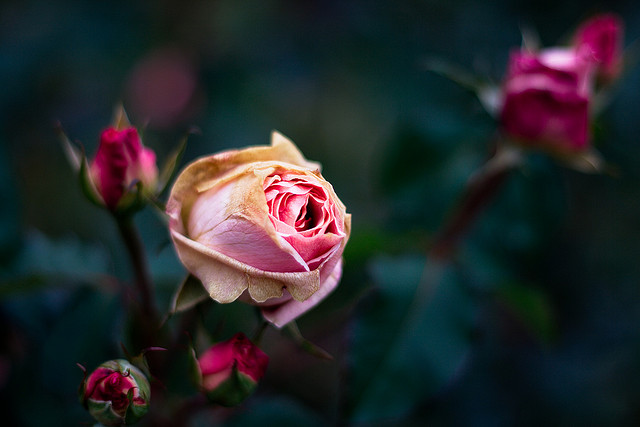One of my favourite things to think about is death.
However, for some reason, in our industrialised culture, it seems to be the elephant in the room that will one day sit down, right where we are standing, and squish us into nothingness.
Apart from vaguely being addressed by religion, there seems to be a lack of space for death in this culture at all. However, what we resist, persists—and perhaps it’s no coincidence that the civilisation that doesn’t talk about death is hurtling head first toward total ecological destruction and the death of our entire species.
So the question we need to ask is, why?
Why do we treat death like an embarrassing secret, even though it happens to every single person on the planet?
Could it be that an open and intimate relationship with death would take away the power of the media, the advertisers and the politicians? Don’t they use the subtle, unconscious notion of death to persuade us into listening to their propaganda? If we had an open and conscious relationship with death, would we be so easily spooked by it?
Perhaps it’s because with death comes the end of consuming? No more tasty meals, exciting holidays or romantic relationships? In a culture that encourages consuming, even in the face of possible annihilation, there is no place for thinking about death. If we considered it too much, perhaps that pair of designer jeans would suddenly seem much less important.
Or is it because industrial civilisation has completely detached us from the cycles of life and death, and the circle of life has become an abstraction?
A city is a perfect symbol for perpetual life and the economics that run it are also based on perpetual growth and perpetual consumption (a bit like cancer). What is missing here is the death part of the cycle. The time when the system breathes out and shrinks back.
Working with the land means you come to know how soil works (and how important soil is for life). You come to know that all the microorganisms, the bacteria, the fungi and the mini beasts will be pleased to welcome your body back into the soil. And then it doesn’t seem so dark and frightening, after all. It’s just another part of the cycle.
Ignoring the “dark” side of life finds its way into other aspects of our culture as well.
The new age trend of “positive thinking” is one such thing. When we choose not to see the darkness in our culture, and in ourselves, then we are choosing to be unconscious. Consciousness is facing all aspects of reality, whether they fit into our ideas of good or bad, light or dark. And it’s sad to say, but there are a lot of dark aspects of Western culture that need to be brought into consciousness, sooner rather than later.
Another aspect of ignoring the darkness is avoiding conflict and pain.
Conflict can be an extremely uncomfortable process, but what usually happens is that we cut ourselves off half way through the process because we have a belief that the darkness, pain and conflict shouldn’t exist. Luckily for some, this isn’t the case; but in others conflict is avoided at all costs (and manifested in stressed and tense bodies instead).
However, if we are brave and face the uncomfortable feelings, face the death of our egoic attachments, then we will always continue along the cycle toward the light again.
It could be said that the impact of industrial culture on the planet is one such cycle, and in some ways I would agree. Perhaps we needed to go through the disconnection from the land and each other to really appreciate what we had before.
It’s time, however, that we made that move and let this destructive part of our history die before we destroy our habitat completely.
Author: Suzanne Williams
Editor: Emily Bartran
Photo: William Neuheisel/Flickr











Read 4 comments and reply